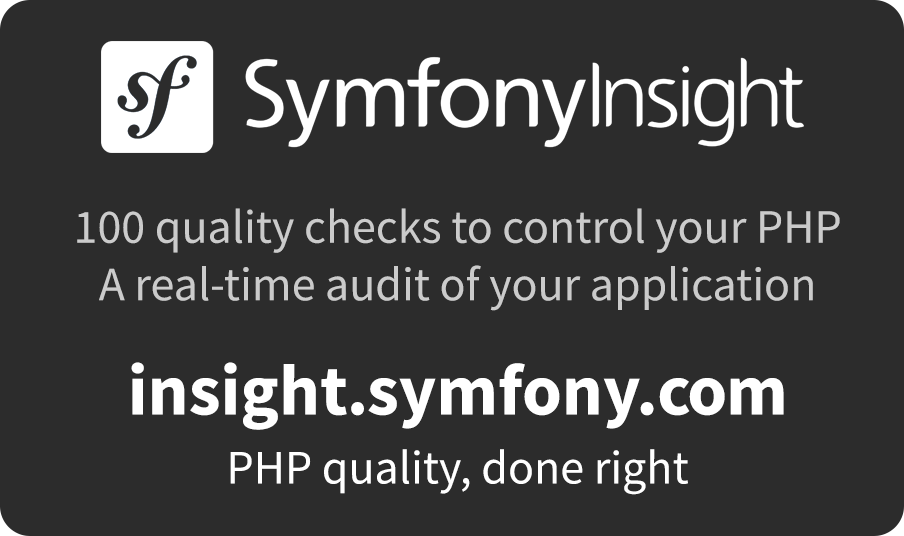The Symfony CLI is a developer tool to help you build, run, and manage your Symfony applications directly from your terminal. It's Open-Source, works on macOS, Windows, and Linux, and you only have to install it once in your system. Learn more about Symfony CLI.
Choose one of the following installation methods:
Installer
— via wget or curl
$ wget https://get.symfony.com/cli/installer -O - | bash$ curl -sS https://get.symfony.com/cli/installer | bashHomebrew — install Homebrew
$ brew install symfony-cli/tap/symfony-cliDebian/Ubuntu — APT based Linux
$ curl -1sLf 'https://dl.cloudsmith.io/public/symfony/stable/setup.deb.sh' | sudo -E bash
$ sudo apt install symfony-cliDownload packages from GitHub: amd64, arm64, armhf, i386.
Fedora/CentOS/SUSE/RedHat — YUM based Linux
Use yum instead of dnf on older versions.
$ curl -1sLf 'https://dl.cloudsmith.io/public/symfony/stable/setup.rpm.sh' | sudo -E bash
$ sudo dnf install symfony-cliDownload packages from GitHub: aarch64, armv6hl, i386, x86_64.
Alpine — APK based Linux
$ sudo apk add --no-cache bash
$ curl -1sLf 'https://dl.cloudsmith.io/public/symfony/stable/setup.alpine.sh' | sudo -E bash
$ sudo apk add symfony-cliDownload packages from GitHub: aarch64, armhf, x86, x86_64.
Binaries
Download binaries from GitHub: 386, amd64, arm64, armv6.
Package repository hosting is graciously provided by Cloudsmith. Cloudsmith is the only fully hosted, cloud-native, universal package management solution, that enables your organization to create, store and share packages in any format, to any place, with total confidence.
Choose one of the following installation methods:
Installer — via wget or curl
$ wget https://get.symfony.com/cli/installer -O - | bash$ curl -sS https://get.symfony.com/cli/installer | bashHomebrew — install Homebrew
$ brew install symfony-cli/tap/symfony-cliBinaries
Download binaries from GitHub.
Choose one of the following installation methods:
Scoop — install Scoop
$ scoop install symfony-cliBinaries
Use the symfony binary provided by the Symfony CLI to create new applications:
If you are building a traditional web application:
$ symfony new --webapp my_projectIf you are building a microservice, console application or API:
$ symfony new my_projectYou can also read Symfony Docs to learn about installing Symfony with Composer.
You can use Symfony features in any PHP application, not only in Symfony projects. Symfony publishes over 250 independent packages, so you can add only what you need to your applications. Some of these packages, called components, are stand-alone and don't require other packages to work.
Install Composer and run this command to add a Symfony package in your app:
$ composer require



